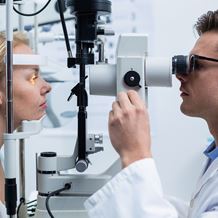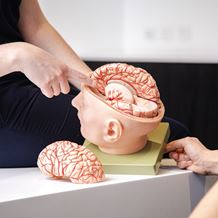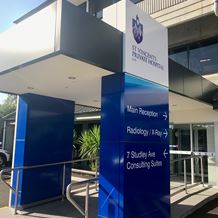What is Macular degeneration?
Macular degeneration is a condition that causes problems with people’s central vision. The term ‘Macular’ refers to the central part of our retina which is the light sensitive tissue lining the inside ‘cup’ of the eye.
There are broadly 2 types, a so called ‘wet’ variety and a ‘dry’ one. The difference between the 2 can have implications about how rapidly deterioration may occur and whether or not treatment will help. It is possible to have a mixture of both types.

Who is at risk of Macular degeneration?
As it’s full name suggests, Age Related Macular Degeneration disproportionately affects older adults, men and women alike, and the risk becomes greater with increasing age. For example, approximately 12% of all people over the age of 80 have significant sight affecting macular degeneration.
Apart from age, having a family history and smoking can increase your risk of macular degeneration.
What are the symptoms of Macular degeneration?
The main symptom is a deterioration of the quality of central vision. This is often a generalised blurring of things that you look at directly, and may sometimes be accompanied by straight lines looking crooked or bent.
What is the test for Macular degeneration?
Regular eye checks are recommended and can be performed by local optometrists (eye care practitioners who specialise in glasses) or ophthalmologists (eye doctors). If someone has the early stages of macular degeneration or is at higher risk, it can be helpful to self monitor by using a small grid (Amsler Grid) to check the central vision in each eye individually. If there is any sudden change in the quality of central vision it is important to be assessed promptly as early treatment can improve outcomes and save sight.
What is the treatment for Macular degeneration?
For the ‘wet’ type of macular degeneration we now have a treatment available that allows us to save a considerable amount of vision that would have previously been lost. This involves an injection (or more likely, a course of injections) of a medication into the eyeball. Almost everyone finds the idea of this horrific, however we are able to do this with little to no discomfort! Unfortunately we don’t have any current treatment for the ‘dry’ type, though there are considerable research advances being made.

What is the most important message?
Macular degeneration is a very common condition in older individuals that affects the central vision. Treatment is available in many cases and is best commenced as early possible so prompt assessment by an eye care professional is really important if you have concerns.
Dr Andrew Shaw
Dr Shaw is a specialist ophthalmologist with expertise in the surgical and medical treatment of retinal conditions. Dr Shaw has specialist interests in the diagnosis and treatment of macular degeneration, cataracts, diabetic retinopathy, retinal vein occlusions, vitreous haemorrhage, epiretinal membranes, macular holes, retinal tears and retinal detachments and is available for urgent referrals.




